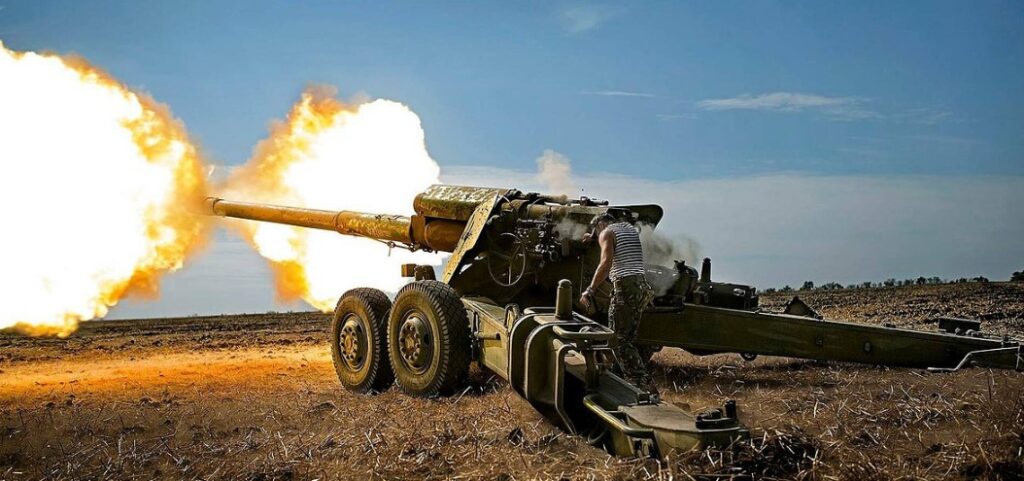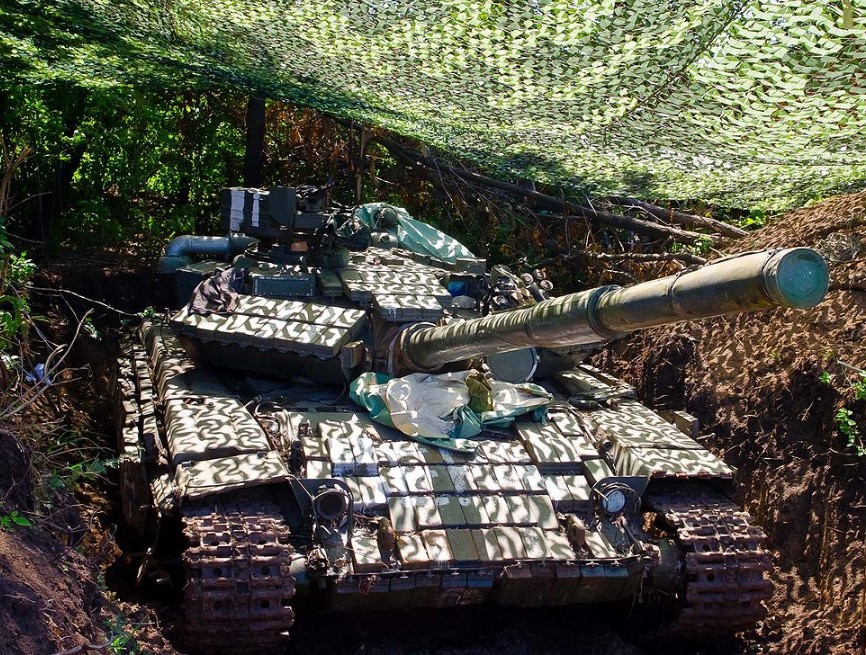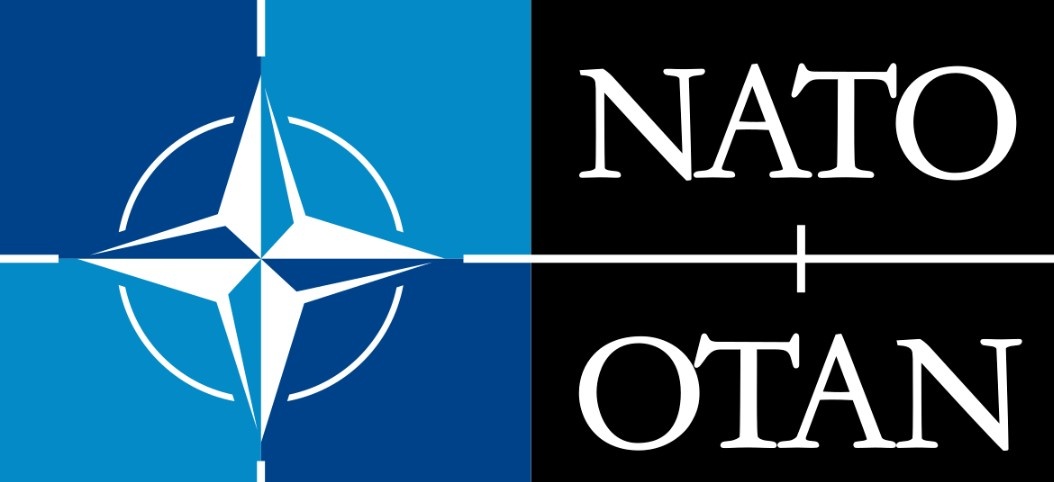By John Pickard
It is almost a given that the left in the labour movement is opposed to NATO. But unfortunately, that opposition sometimes skews opinions about what our approach to the war in Ukraine should be.
As the old adage of Clausewitz has it, war is the continuation of politics by other means. But because war is the most ‘extreme’ expression of politics, that is all the more reason for us to look at it from the point of view of contending class interests as we should with all politics.
The North Atlantic Treaty Organisation and its counterpart in Asia, the South East Asian Treaty Organisation, are the military-strategic organisations of international capitalism, of imperialism, and particularly of what is by far the strongest military power, the United States.
Since the foundation of NATO in 1949, the United Kingdom has been a member, and it has been involved in several NATO wars and military interventions since. NATO has intervened twice in Iraq, in Bosnia/Herzegovena, Kosovo and in Afghanistan. In 2011, NATO aircraft were actively involved in bombing operations in Libya, hastening the downfall of the Gaddafi regime. More recently, NATO has supported Turkish military activity along the border with Syria and into Syria itself.
Hundreds of thousands have died in NATO’s wars
Hundreds of thousands have died in the NATO wars in Afghanistan and Iraq, and the interventions produced no lasting benefits for the population of those countries. The complete collapse of society in Libya (a major contributor to the dam collapse disaster this month) and the near collapse in Iraq – both of which have driven millions of refugees to seek safety and security elsewhere – can be firmly laid at the feet of NATO.
Although NATO is dressed up as a ‘collective security’ agreement, supposedly a guarantee of democracy, it has in no sense advocated or sponsored ‘democracy’ in its member states, whether that is Hungary, Poland or Turkey. It collaborated actively with governments in Spain, Portugal and Greece when these were still military-police dictatorships.
Just as socialists can have no confidence in the domestic policies of the political representatives of capitalism, we have to give an unequivocal thumbs down to the international military/strategic representatives of capitalism. We stand against NATO and what it represents, as much as we stand against capitalism and what it represents.

Unfortunately, the leadership of the Labour Party has always supported British membership of NATO, although Jeremy Corbyn’s position was equivocal on the issue. In the stifling internal atmosphere of the Labour Party today, it is almost an expulsion offence to be against NATO. But it is a principle for which it is worth risking expulsion.
NATO’s most powerful member is the USA
Having said that, the demand for “withdrawal” from NATO is meaningless unless it is linked to a consistentd struggle for the transformation of society along socialist lines. A capitalist Britain will form strategic military alliances with similar states, whether or not it is through the medium of NATO.
France, for example, withdrew from active participation in NATO activities for a long time (although remaining a member). Likewise, before their accession to NATO membership, both Finland and Sweden cooperated with NATO. Within NATO there are frequently disputes between members. Greece and Turkey, for example, both NATO members, have long been in dispute over the Aegean and the Eastern Mediterranean and it is not impossible that at some future point their antagonism may lead to hostilities.
But in the main, operating on consensus, and through the economic and military pressure of its most powerful member, the USA, NATO operates in the interests of world capitalism. A capitalist Britain would inevitably find itself operating under the same political umbrella that it does now, even if it left NATO.
Unfortunately, looking at the basis of NATO correctly, some on the left have nevertheless interpreted the war in Ukraine in a one-sided way. What is true is that the character of the war has changed since it began. According to the Financial Times, days after the invasion, the USA even postponed the long-planned test of an intercontinental missile, in case Putin “misconstrued” what it was.
Eight years of war in the Eastern provinces
The war in Ukraine was anticipated for eight years, following the Maidan protests that overthrew President Yanukovich and the Russian-sponsored secession of the Eastern provinces. The war that followed in Donetsk and Luhansk resulted in the deaths of over 14,000, mostly civilians, in eight years. But when a full-scale invasion was launched by Putin in February last year, although economic sanctions against Russia were swiftly put in place, NATO was at first reluctant to intervene even indirectly.
The consensus among most military commentators was that Russian superiority would lead to a quick victory, but events have proved this prognosis to be wrong. The resistance of the Ukrainian armed forces – more than anything else, due to much higher morale – has stopped the Russian advance in the South and removed the threat to Kyiv in the North, at least for the moment. As military support from NATO states has increased, the war has increasingly come to take on the appearance of a proxy war between Russia and NATO.

It is, indeed, an imperialist war on both sides. It is a war waged by Putin, not for the Russian-speaking population of Ukraine, but in the interests of Russian geo-strategic influence. It is a war supported by NATO states who hope to grind down Russian military power and pave the way for the future exploitation of the Ukrainian economy by Western capitalist interests.
Without saying it in so many words, the Morning Star supports Russia
But transferring this logic backwards in time, some on the left effectively blame the war on NATO expansion. A recent Morning Star editorial describes the war as one being “fought in the service of the US strategic drive to punish Russia and challenge China’s growing influence and economic power”. Effectively, although not saying so in so many words, the Morning Star, like some on the left, is siding with Russia on the grounds of NATO states having provided arms to Ukraine.
It is true that NATO has expanded Eastwards, but socialists should not argue as a result, that Russia has the ‘right’ to invade Ukraine, even if it was to prevent accession to the EU and NATO. “It was precisely Russia’s anxiety about its own security” the Morning Star editorial said, “that lies at the centre of this conflict”. This is, of course, only a half-truth. It was Putin’s assertion of what he believed was Russia’s ‘right’ to domination of Ukraine that launched the invasion, the claim about ‘de-Nazification’ being only a pretext.
Socialists do not recognise ‘spheres of influence’. We are internationalists, and we do not see it as legitimate for larger states to assert an involuntary domination over smaller states, no matter what their proximity. Yet that, in a nut-shell, was Putin’s real reason for launching the war.
There is also within the left some support for the organisation and the slogan, Stop the War. “Stop the War”, the Morning Star editorial said, “has been a voice of reason and humanity in a narrative characterised by a pronounced indifference to the human cost of war…”
Capitalist governments always behave like capitalist governments
We have to ask the question, if this is a ‘demand’, to whom is it addressed? Do we address the governments of capitalism – which includes the West and Russia – to stop behaving like capitalist governments? It is only necessary to ask the question to see the pointlessness of the slogan.
Is the slogan, then, directed to the international workers’ movement? Is it a call for workers to impose their own sanctions, as some workers did to prevent arms exports to South African and Pinochet’s Chile in the past? If it is, then it is a completely one-sided call, because in reality, it would only have an effect on arms to Ukraine, while having no impact whatsoever on Russian arms. It amounts to a call for Ukraine to surrender to Russian armed superiority. How would Ukrainian workers treat such a call?
It is all very well us commenting on the war from ‘outside’, but we have to view the war from a class standpoint, to see how it is seen by workers in Ukraine and Russia, and particularly the former who are bearing the greatest direct burdens of the conflict.
What is the outlook of Ukrainian workers, and what approach should socialists take to Ukrainian independence? It has been argued that on the basis of Marxist theory, the ‘right of self-determination’ is not an absolute principle. In the period before the First World War, for example, Lenin argued that if the struggle for self-determination for Serbia (then part of the Austro-Hungarian Empire) was to result in all of Europe being plunged into a bloody war, then it was not a struggle that should be supported.
In the present situation, Ukraine has the right of self-determination
But that is not the situation we faced in Europe. Ukraine was already an independent state in 2022 – albeit with an ongoing war in its Eastern provinces – and unless some specific conditionality is put forward, those on the left who repeat that the self-determination of Ukraine is not an “absolute” right simply appear to be supporting Russia and Putin’s assertion that there is no such nation as Ukraine.

As we have explained in a previous article, in the only referendum on independence, in 1991, more than 90% voted for independence from the then Soviet Union, including majorities in Donetsk, Luhansk and Crimea. Even among Ukrainian Russian speakers, there was support for independence. Zelensky is himself a native Russian speaker. Ukraine has a right to independence, if it so wishes.
If Ukrainian workers, including Russian speakers, are repelled by the idea of ‘control’ by Russia, and if they have sought closer alignment with the EU and the West, it is entirely due to the decades of monstrous, totalitarian control of Ukraine under Stalinism, and bureaucratic control from the Kremlin.
So what approach should socialists take to the Ukrainian war since the invasion? Basing ourselves on the outlook of Ukrainian workers, we have to support their right to conduct a defensive war to protect their families, their livelihoods and their communities.
If the right of Ukrainian workers to defend their freedom is accepted – and it ought to be on the left – then it must also be accepted that for Ukrainian workers, where and how they obtain the means of defence to them, is secondary. It was above all the morale of Ukrainian fighters that made the crucial difference in the first phases of the war, but physical materiel has become more important the longer the war has gone on.
Socialists in Ukraine would argue for a socialist war policy
It is not necessary to support the ideas and policies of Ukrainian President Zelensky, or NATO, to support the right of Ukrainian workers to conduct a defensive war. No doubt where it is possible socialists in Ukraine would argue for a socialist policy on war. They would argue for the nationalisation of all arms and vital industries and for the democratisation of the armed forces, for the dismantling of the remnants (and it is only remnants) of the pro-fascist armed units embedded in the army. They would call for an end to war profiteering and corruption, and the nationalisation of the assets of the gangster oligarchs.
In Russia, socialists, even against the tide of opinion and the repressive apparatus of Putin’s state, are opposed to Russian forces going into Ukraine. They cannot put themselves in the position of appearing to be in favour of greater Russian casualties, but they can argue for ‘peace without annexations’, for Ukraine to be given the right to self-determination. But even this would be part of a struggle for the transformation of society and the overthrow of the Putin mafia/oligarchal state.
Within an independent Ukrainian state, they would argue that if necessary, those provinces with a high proportion of Russian-speakers should be able to decide democratically on their future, as part of Ukraine or not. It is not an issue that should be decided by Russian tanks.
- No support for NATO or any policies of capitalist states
- No support for the right of large states to violently assert a ‘sphere of influence’
- Support the right of Ukrainian workers to conduct a war of national defence
- For ‘Peace without Annexations’
Discussing what ought to be a socialist outlook to the war is not the same as putting forward a perspective. Unfortunately, at this point in time, the international labour movement – and that includes the workers in Ukraine and Russia – are not in a position to influence the conduct or the outcome of the war.
It does look like the war is going to grind on for the foreseeable future, with Russia grimly hanging on to the territory it has captured to the East and South. Even with arms from NATO, the Ukrainian armed forces are finding it difficult to dislodge Russian forces from these areas.

Despite Zelensky’s declared aim of freeing all of Ukraine, including Crimea, it looks increasingly likely that what will end the war will not be a decisive victory for either side, but simple exhaustion, war weariness. There are increasing calls in the West for some strategy for a negotiated peace, which would mean in effect that Russia keeps what it has won and the West is then freed to exploit what remains of Ukraine.
War exhaustion leading to an unsatisfactory ‘peace’
Some Republican Senators in the US are calling for a negotiated settlement, because they see Ukraine as a bottomless pit for financial support. Zelensky is fighting an increasingly difficult battle in the West against ‘Ukraine exhaustion’ – an unwillingness to go on providing support with no end-game worked out.
Some sort of unsatisfactory armistice, with unstable ‘peace’ lines, is the most likely outcome, therefore, although when and under what circumstances that comes about is impossible to say at this point.
Although it is not what Zelensky or Ukrainian workers would wish for, both parties to the ‘proxy war’ would see a negotiated settlement as a way of cutting their losses. Putin would keep a large slice of Ukraine, including a land bridge to Crimea, and the capitalist countries within NATO will be free to exploit the rich natural resources of Ukraine. NATO aid, after all, and whatever the impression presented in the Western press, is not given for nothing. At some stage it will be the Ukrainian workers who will be expected to pay the bill for the military aid. Whether they are willing to do that is another matter.



